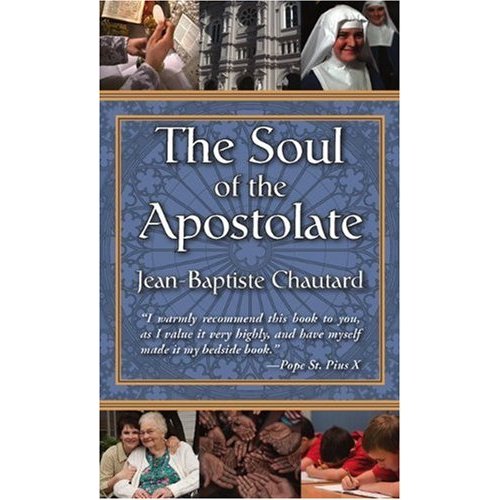I’d like to look at spiritual growth from two perspectives: One, Evangelical and contemporary and the other, Roman Catholic and a bit more ancient.
Contemporary, evangelical, “mega-churches” have found that the faith of more mature Christian believers is characterized by a number of factors:
- They are solid, integrated people possessing a high level of emotional depth.
- They study. Their faith is built upon intellectual trust in core Christian beliefs.
- They have consistent spiritual practices that have been established in their daily lifestyle.
- This daily dedication to personal spiritual practices paves the way for wide-ranging outreach action - most often outside of the church.
- Their willingness to “risk everything” for God is and their attitudes about sharing faith, financially supporting God’s work, and making time available to serve the community is double that of other believers.
- Their “very strong agreement” with such attitudes about love and sacrifice suggest a wholehearted rejection of power, fame, or fortune—things that the world holds dear.
Nevertheless, these spiritually mature evangelists have two big spiritual gaps between what they say - and what they do.
- The Giving Gap - There is a big gap between attitudes expressed about financial stewardship - and their actual giving behavior. This “Christ-Centered” segment strongly agrees that giving money to God’s work is their number one financial priority - but their actual tithing falls far short.
- The Serving Gap - There is also a significant gap between their attitudes about spiritual gifts - and their decision to actually use those gifts to serve others.
The percentage of those in this “Christ-Centered” segment who say that they want to use their gifts for God is nine times greater compared with other segments. However, their actual behavior (the percentage who actually serve those in need or serve the church at least monthly) is only two times greater.
Why is that? Spiritually say that giving to God and serving others is important, but they don’t do it.
In 1946 in France, Carthusian monk, Dom Jean-Baptiste Chautard, wrote the spiritual book, The Soul Of The Apostolate. Chautard said that, “Every soul is a world by itself. It has its own shades of difference. Still, as an ordinary rule, we may classify Christians in various groups.”

Level 1. Those Hardened in Sin - They have a stubborn persistence in serious sin, either out of ignorance or because of a maliciously warped conscience, as well as a deliberate refusal to have any recourse to God.
Level 2. – 4. Surface Christianity, Mediocre Piety and Intermittent Piety - They struggle with serious sin. They struggle with less serious sin as well. Their pray life is, at best, erratic and often mechanical.
Level 5. – 6. Sustained Piety and Fervor - Serious sin is not an issue, in fact it is practically non-existent. Less serious sin catches them by surprise but they confess it immediately. Imperfections are their main focus, they want to get rid of them and fight them constantly. They have a well-developed prayer life; they pray a lot during the day and because of this intense and dedicated prayer life, they alternate between powerful consolations on the one hand, and fierce trials and dryness on the other hand.
Level 7. Relative Perfection - They guard against imperfections through vigilance and personal charity towards others. Prayer is integrated in all that they do. They have a thirst for self-renunciation, detachment, divine love, the Eucharist and for Heaven.
Chautard says that there are other levels above these which bring us into the realm of mystics. Few and far between are the souls that belong to the highest category, even to the last three categories. The higher one climbs the spiritual ladder, the harder it is.
Again, why? Why are so many people seemingly unwilling to move into a closer relationship with Christ?
Is it perhaps that taking your relationship with God more seriously seems risky because it IS risky. When people consider it or even muse on it, they ask questions such as:
- What is that risk? What’s the cost?
- Do I even want to go there?
- If I wanted to, how would I spiritually grow to get there? Where do I start?
So is there a solution? Certainly. Consider a three pronged approach that is based on one important idea: Keep it simple.
- Be open to God’s grace and simply willing to enter into the process.
- From St. Bernard: “Ask the Lord to come and remove the stumbling-blocks within the kingdom which is your soul, so that He who ought to, may reign in it.” (Hom. IV super Missus est, 1-2: PL 183, 78-80)
- From Chautard (quoting St. Thomas Aquinas): In the Eucharist, “The only-begotten Son of God, desiring us to be sharers of His Divinity, assumed our nature, in order that having become man, He might make men gods.” It is in the Eucharist that one assimilates the divine life. (John. 6:54). The Eucharistic life is simply the life of Our Lord in us. It is the indispensable state of grace, and also by the superabundance of His action. “I am come that they may have life, and have it more abundantly.”(John. 10:10).
It is Christ the King who reigns over sin and breaks the power of evil. It is the King of the Universe who created everything and makes all things new (especially you) through Jesus Christ. And it is The Prince of Peace who desires to calm your fears, keep you safe from all distress, offers you a blessed hope, and the palpable presence of our redeemer and restorer, Jesus Christ.
Audio version of the homily is here: